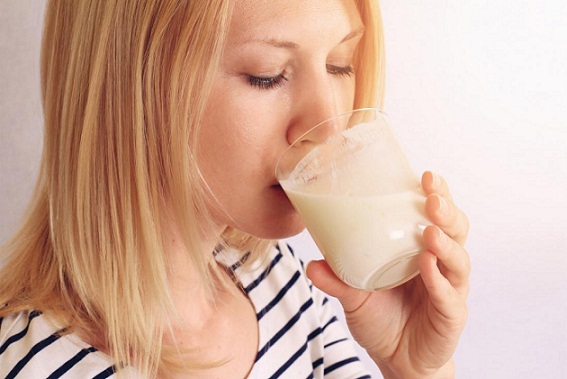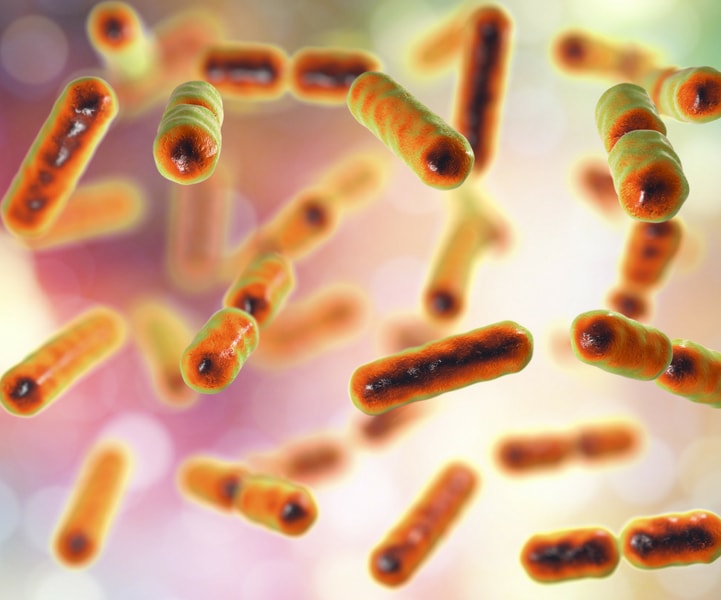Beet Kvass Side Effects
The world is fast turning into a place where people are increasingly becoming conscious about their health and fitness, and seek the best in terms of physical endurance, work performance and even their looks.
Beets have been grown for food since ancient times and both its leaves and the root are edible.
Kvass has its origins in traditional Russian culture. Beet kvass is a probiotic tonic made from beets by fermenting scraps of wheat or rye bread with water and using that as a starter culture to ferment beetroots.
While there are many probiotic benefits to having beet kvass, it has some notable side effects as well that you should keep in mind.
Beeturia
Your urine is everything your body deems as waste and whatever you eat throughout the day can influence the color of your urine. Beet kvass can make your urine appear pink in a condition called beeturia.
According to a UK study, this effect is more prevalent in adults with an iron deficiency. Beetroots are high in iron content, but when fermented, the body finds it difficult to absorb all the nutrition.
In another study, conducted on eight individuals, there were similar findings where all of them were given beetroot supplements, and seven of the eight participants showed signs of beeturia.
While beeturia is not a harmful condition in itself, it is a tell-tale sign that the body is unable to process iron.
Beet kvass has high amounts of iron depending upon the fermentation process. If your body has a problem with metabolizing iron, then it is highly probable that you may suffer from iron toxicity by drinking excess of beet kvass.
Colored Stools
Beetroot gets its deep red color from a chemical named betacyanin. Most foods are chemically altered and lose their coloration as they go through the digestive system, but most people’s digestive system is unable to breakdown betacyanin.
Beet kvass can also cause a condition called melaena. This refers to tarry or black stools from the presence of altered blood. Colored stools may be harmless in most situations, but they are an indication that there is blood in the stools.
It is recommended that you speak with a physician or a medical practitioner if you often notice colored stool.
Kidney Stones
Beetroot is rich in oxalate which can increase the risk of developing kidney stones according to the Harvard Health Blog. Beet kvass has higher content of oxalate as compared to regular beetroot juice because of fermentation.
If you have a history of kidney stones, it is advised that you stay away from all oxalate containing foods, especially beet kvass. Calcium, one of the primary minerals causing kidney stones, finds it very easy to combine with oxalate present in beet kvass.
Consumption of beetroots can increase urinary oxalate excretion, which leads to the development of calcium oxalate stones.
Blood Pressure
If your blood pressure levels are low or fluctuating, then beet kvass may be a recipe for disaster for you.
Probiotics in beet kvass are among the most potent in bringing blood pressure levels down. In fact, beet kvass is a traditional Russian remedy to treat high blood pressure disorders.
In vegetable form, beetroot can cause sudden dips in blood pressure levels by dilating your blood vessels and increasing blood flow.
An Australian study stated that fermented beetroot juice or beet kvass could significantly lower blood pressure in men when consumed as part of a normal diet.
When beetroots are fermented, it increases the levels of nitrates present. As per certain studies, nitrates can acutely lower blood pressure in healthy individuals.
Skin Allergy
Though rare, beet kvass can result in skin rashes in few individuals. Probiotic intolerance affects many individuals who are not used to eating fermented whole foods.
Beet kvass is rich in probiotics and can result in an auto-immune reaction where the immune system treats friendly bacteria as harmful pathogens.
Allergic reactions to beetroot consumption include rashes, hives, itchiness, chills, and fever with few people also complaining of the constriction of vocal cords.
Stomach Issues
This is another side-effect that can be directly attributed to high probiotic content in beet kvass. Probiotics are known to set up colonies in the gut.
When you give them a helping hand by introducing additional probiotics in the form of beet kvass, then they begin dominating the gut microbiome.
This causes large quantities of harmful bacteria to die at the same time. In the process, toxic gases are released by the dying harmful pathogens resulting in flatulence, abdominal pain, constipation, and even diarrhea.
Beetroots carry some of the most potent Lactobacillus strains which grow and multiply with the help of starter culture used in beet kvass. These bacteria in excess can also cause bloating, flatulence, and cramping.
Beetroot is also known to cause changes to bowel movements because of their high fiber content. Beetroots can directly cause constipation or diarrhea in individuals with sensitive bowel systems because of high levels of sugar.
Your gastrointestinal issues may exacerbate if you continue having beetroots. The roots also have high fiber content which can cause flatulence in the gut. High prebiotic content may also inadvertently help feed the harmful bacteria species.
Beetroots are rich in nitrites and as per a report published by the Ohio Department of Health – short-term exposure to high levels of nitrites can cause stomach upset and other abdominal conditions like diarrhea and vomiting.
The symptoms can develop within a window period of 2 hours to 14 days, however they typically manifest within 18 to 36 hours.
Pregnancy Problems
Betaine is a compound in beetroot that causes concern for its use in pregnancy. If you are pregnant it is recommended that you get your probiotic strains from specially designed probiotic supplements, and not fermented foods.
Your immunity is suppressed during pregnancy and the bacteria strains may just cause an infection.
Betaine had shown adverse effects in animal testing and there are not enough studies to confirm its safety in pregnant women.
In addition, beet kvass is high in nitrites and pregnant women are more sensitive to these. Studies suggest that the effect of nitrites may prove to be toxic to fetus as well.
You should completely refrain from having beet kvass during the 30th week of pregnancy when there is a rise in oxidative stress. This oxidative stress may combine with the effects of beet kvass and result in a number of problems.
Liver
Beets are rich in iron, magnesium, copper, and phosphorous, whose levels are enhanced due to the long fermentation process.
Excessive consumption of these metals can lead to their accumulation in the liver which can harm the liver and pancreas.
Liver is an all-essential organ which is linked with every other organ in the body. It processes fat and is responsible for keeping your heart healthy. Without a healthy liver, no other organs will be able to complete their complex functions.
While the probiotic strains present in beet kvass aid in liver function, it is possible for high quantities of essential minerals to result in liver problems.
Blood Sugar
Beetroot is high in sugar which can cause spikes in blood sugar levels. Beet kvass when made traditionally by allowing the culture to ferment for days and weeks on end is not high in sugar. However, the beet kvass available in stores today doesn’t go through traditional fermentation processes.
Without adequate fermentation, probiotic species are unable to break down sugar molecules. This results in high sugar levels in beet kvass which can cause sugar spikes.
Beets as vegetables are rated moderately high on the Glycemic Index, which means it is best to avoid them if you have issues related to your blood sugar levels.
Gout
Gout is a type of arthritis and is an extremely rare side effect of beet kvass. Excessive uric acid build-up can result in gout which can get very painful.
Extreme joint pains (particularly at the base of the toe), shiny red joints, and high fever are some of the painful symptoms of gout.
According to the University of Maryland Medical Center, beets have high levels of oxalate, which is one of the primary causes of gout.
How Can You Prevent Beet Kvass Side Effects
Certain side-effects of beetroots are unavoidable, especially if you are just starting out with probiotics. Your digestive symptoms will get worse due to Herxheimer reaction before it gets better.
However, you can prevent more severe side effects like beeturia and kidney stones by increasing your water intake.
It’s critical to understand that when you include probiotics to your diet, large quantities of harmful bacteria perish leaving a lot of toxic residue behind.
Your body needs to flush out these toxic substances to prevent its absorption in the bloodstream. This can only happen if you drink lots of water, eat a healthy diet, and exercise.
You could also consider taking a probiotic supplement to maintain a healthy digestive system and increase the diversity of your gut microbiome. This will help prevent side effects stemming from beet kvass to a major extent.




